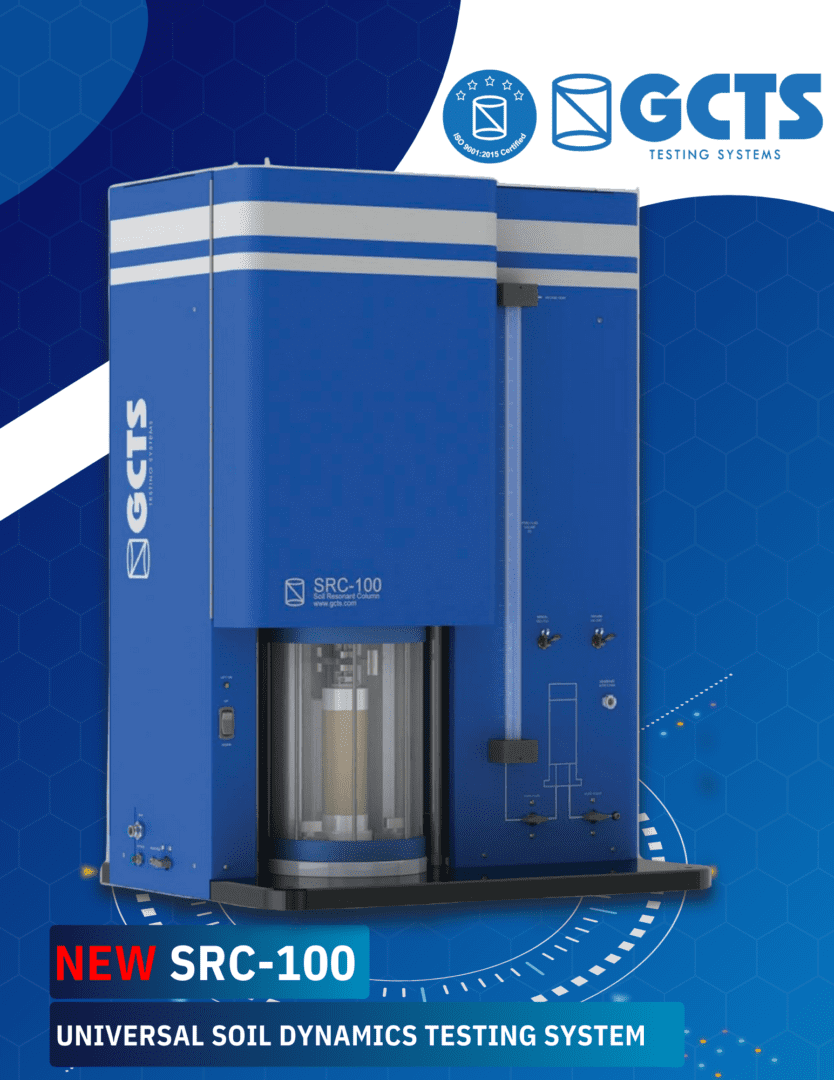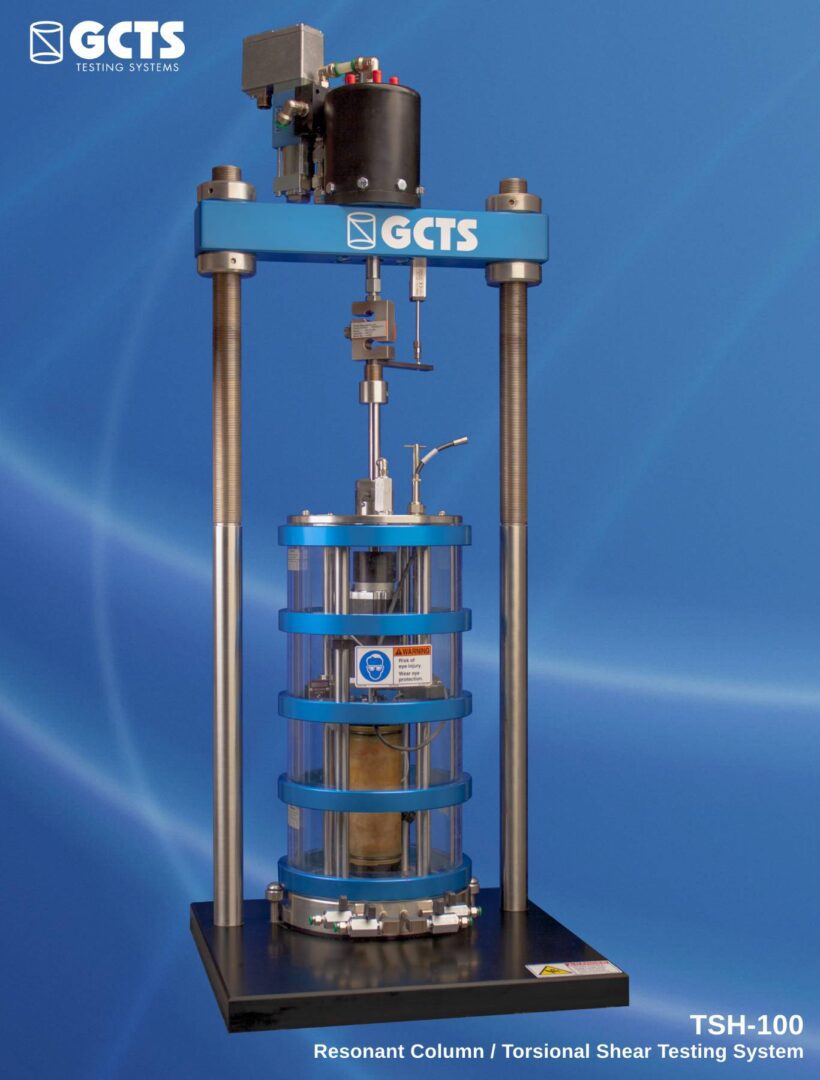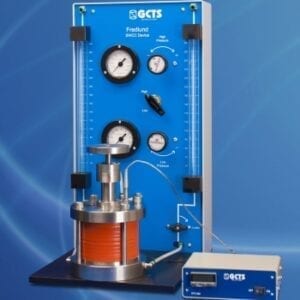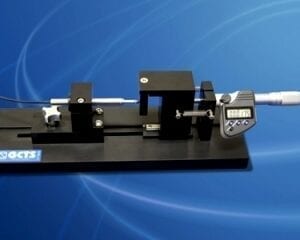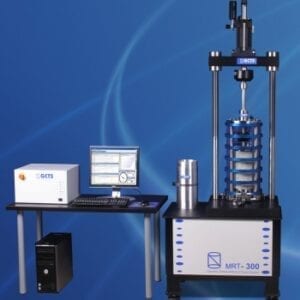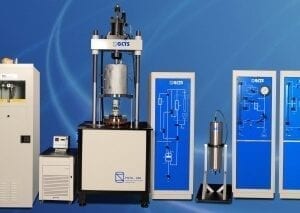Universal Soil Dynamics Testing System
Geotechnical Earthquake engineering design plays a crucial role in ensuring the safety and stability of infrastructure, buildings, and communities in seismic-prone areas. With the increasing frequency and magnitude of earthquakes, it is more important than ever to have advanced tools and systems to evaluate the seismic response of soil and rock formations. The GCTS SRC-100 Universal Soil Dynamics Testing System provides the ability to conduct advanced geotechnical earthquake engineering studies and assessments.
The SRC-100 system is a fully automated testing platform that can simulate the dynamic response of soil and rock formations to seismic loads, providing a realistic representation of in-situ soil behavior. The system can perform resonant column tests, cyclic/dynamic triaxial tests, ultrasonic velocities, and resilient modulus providing a comprehensive understanding of soil behavior under cyclic and seismic loading conditions.
The resonant column test is a widely recognized method for determining the fundamental dynamic properties of soil and rock formations, including the shear modulus and damping ratio. The dynamic triaxial test, on the other hand, provides a more advanced evaluation of soil behavior under axial and cyclic loading conditions, including the evaluation of strength, stiffness, and failure mechanisms.
The SRC-100 system is designed to perform high-precision, high-accuracy testing in accordance with the most recent international standards and guidelines. The system features advanced hardware and software components that allow for precise control of the test conditions, as well as real-time data acquisition and analysis. This ensures that the results obtained from the system are accurate and reliable, and can be used to make critical design decisions.
The GCTS Soil Resonant Column and Dynamic Soil Triaxial Testing System combine the features of both resonant column and torsional shear devices into one elegant system. This enables them to evaluate the effects of a number of soil parameters, such as void ratio, confining pressure, strain amplitude, number of load cycles on shear modulus, and material damping. By utilizing all available options, this system is capable of the full spectrum of modulus measurement, ranging from ultra-low strains to high strains with significant overlap.
For the resonant column test, a torsional drive is used to vibrate the top of the soil specimen at first-mode resonance at frequencies of up to 500 Hz while the bottom is fixed. A non-contacting rotational transducer is attached to the top platen to monitor the torsional motion directly. The non-contacting sensor is located on extended arms to amplify the rotational deformation and provides a shear strain resolution of 10-6. An optional accelerometer can also be installed to measure large shear strains. These systems can also perform closed-loop torsional shear tests (stress or strain controlled) on the same soil specimen, either statically or dynamically, at up to 50 Hz.
With these systems, soil specimens can be tested under isotropic (hydrostatic) or anisotropic conditions. The driving and measuring system are mounted on a “floating” frame, which allows large vertical specimen deformations throughout the complete test. Its unique configuration also allows for very large shear deformations of up to ±20°.
Relevant Standards
ASTM D4015 Standard Test Methods for Modulus and Damping of Soils by Fixed-Base Resonant Column Devices
ASTM D7608 Standard Test Method for Torsional Ring Shear Test
ASTM D2166 Standard Test Method for Unconfined Compressive Strength of Cohesive Soil
ASTM D2435/ D2435M-11 Standard Test Methods for One-Dimensional Consolidation Properties of Soils Using Incremental Loading
ASTM D2850 Standard Test Method for Unconsolidated-Undrained Triaxial Compression Test on Cohesive Soils
ASTM D3999 Standard Test Methods for the Determination of the Modulus and Damping Properties of Soils Using the Cyclic Triaxial Apparatus
ASTM D4186/ D4186M-12e1 Standard test Method for One-Dimensional Consolidation Properties of Saturated Cohesive Soils Using Controlled-Strain Loading (CRS Option)
ASTM D4219 Standard Test Method for Unconfined Compressive Strength Index of Chemical-Grouted Soils
ASTM D4767 Standard Test Method for Consolidated Undrained Triaxial Compression Test for Cohesive Soils
ASTM D5084 Standard Test Methods for Measurement of Hydraulic Conductivity of Saturated Porous Materials Using a Flexible Wall Permeameter
ASTM D5102 Standard Test Method for Unconfined Compressive Strength of Compacted Soil-Lime Mixtures
ASTM D5202 Standard Test Method for Determining Triaxial Compression Creep Strength of Chemical Grouted Soils
ASTM D5311/D5311M-13 Standard Test Method for Load-Controlled Cyclic Triaxial Strength of Soil
ASTM D5333 Standard Test Method for Measurement of Collapse Potential of Soils
ASTM D7181 Method for Consolidated Drained Triaxial Compression Test for Soils
ASTM D2845 Standard Test Method for Laboratory Determination of Pulse Velocities and Ultrasonic Elastic Constants
AASHTO T307 Standard Method of Test for Determining the Resilient Modulus of Soils and Aggregate Materials
SRC-100
Download the SRC-100 Key Specifications
HIGHLIGHTS
- 2.33 N-m torsional load capacity
- 500 Hz maximum resonant test frequency
- 50 Hz maximum torsional shear test frequency
- 0 to 0.01 rad. angular deformation range
- 0.5 x 10-6 rad. angular deformation resolution
- ±25° maximum rotational stroke
- 25 mm axial displacement range of torque motor
- 10 kN load frame capacity
- 50 mm load frame stroke
- 70 mm maximum specimen diameter (solid or hollow)
- 160 mm maximum specimen height
- 1,000 kPa (150 psi) maximum confining pressure
- Floating drive and measurement system to allow for large angular and axial deformations
- Easy-to-use software to automatically perform resonant column & torsional shear tests
- Load frame allows for specimen consolidation before testing and anisotropic stress conditions. Also allows for full triaxial tests with available upgrade
- Optional platens for S-wave velocity measurements are available
TSH Series
HIGHLIGHTS
- 2.33 N-m torsional load capacity
- 500 Hz maximum rotational frequency
- ±25° maximum rotational stroke
- 100 mm maximum specimen diameter
- 1,000 kPa (150 psi) maximum confining pressure. Larger capacities available upon request using a metallic cell wall
- Ability to perform tests on either solid or hollow cylindrical specimens
- Floating drive and measurement system to allow for large angular and axial deformations
- Can rotate the specimen either statically or dynamically at up to 50 Hz for torsional shear tests
- Easy-to-use software to automatically perform resonant column & torsional shear tests
- Optional platens with ultrasonic transducers for P- and S-wave velocity measurements available
- Optional loading frame to perform test at anisotropic stress conditions in addition to conventional static and dynamic tests

